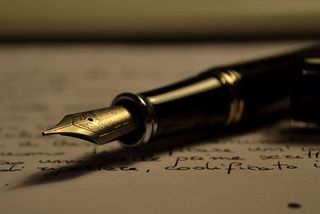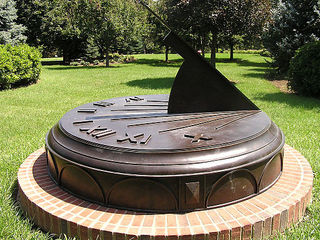Anxiety
What If You Don't Do the Things that Matter Most to You?
Habit formation for a meaningful life.
Posted June 26, 2019

I spent this past week on staycation, working on a book project and beginning an art project—and utterly failing to restore my home to order and sparkling cleanliness. The week seems representative of the habit-formation I’m still working on. One morsel of truth comes through loud and clear as I return to my normal work schedule: We need to do the important things every day.
What are the things that keep us healthy, balanced, secure, and calm in day-to-day life? Of course, the really basic stuff — sleep, exercise, decent food, supportive social interaction. But also, the activity that makes us lose track of time, which for me is writing. We need to do that thing every single day. We can’t give up on the habit if we don’t always get into the flow that makes us forget time. I’ve learned to set a timer in case I do, though: 20 minutes or two hours. Just do it every day.
If we do something every day, we don’t battle with ourselves about whether we’re going to do it or not. Every morning I “do my numbers”—check my bank balance so I don’t bounce a check, note my views of my blog so I don’t stop writing, take my blood pressure so I don’t faint, and review my blood sugar for the previous day so I can keep my diabetes in good control. When I first started spending 15 minutes every morning doing that, I really questioned if it were a good use of time. But now, months later, two things have happened: It's become a strong habit, and my blood sugar is the best it has been in the 46 years I’ve had diabetes. Oh, and I haven’t bounced a check or fainted, either.
If I write every day, I look forward to getting up in the morning; I enjoy reading; I am more attentive to my entire life, personal and professional; I snack less; I feel more grounded; and I’m happier because life is more meaningful. How much motivation do I need to get all those positive results?
Or, put another way, why do I get waylaid time after time? Knowing all this about the benefit of doing the thing I love most every day, why don’t I just keep on doing it every single day? Most of us brush our teeth every day. My dental hygienist has faith that I can floss every day too (“Do it while you watch TV!” she tells me every six months.) And she’s right: I can, and I am! I get waylaid with the writing because it continues to feel like a big deal, and therefore hard. I get anxious.
I get anxious about doing the thing I love more than anything else in the world, anxious about the activity that makes me lose track of time and results in tremendous satisfaction. Why? It’s procrastination, that crazy form of supposed “anxiety management” that is in fact a form of anxiety itself. I get waylaid because I am too scared (or tired or distracted or busy or bored) to risk writing something. What if I don’t have an idea? What if I can’t express something? What if I make myself too vulnerable? What if the result is inane, or conversely, requires me to change? Those idiotic, and prevalent, “what ifs” of ye olde anxiety get in our way again and again. How can we resist their negative drag?
Resistance to change is often practically automatic: We love that stasis—even when it leaves us stuck somewhere we truly do not want to be. Think of the relationships you didn’t end when you might have, the jobs that threatened your soul, the alcohol or drugs that kept you in chains, the doubt that holds you back. Here’s a case where I’m happy to be obvious and child-like: I resist the recurrent drag on my effort to write every day by making myself a little sign, and placing it on the window I face when I’m writing. It says, quite simply, “What if you don’t?”
And you know what effect those four words on an index card has on me? When I go back to work after the staycation, and am nervous about all the stress I will encounter this week, all the therapy about illness and imminent death, about arguments and abuse, about poverty and despair? I read, “What if you don’t write?” and I feel my heart ache and my eyes fill with tears. I need to write, for myself and as a way of honoring the pain that other people share with me. For me, writing is the way to look for—and find—meaning in that pain: to help my clients find the meaning in their experience and find my own meaning in bearing witness to their experience as well.

“What if you don’t?” is challenging myself to live: If I don’t write, I can’t listen to and engage with the people who share their stories with me. I’ll shut down. If I write, I have room to hear their stories, see patterns and potential that clients may not see in their own lives, and be able to help them make a change if they want to do so.
I believe that the little sign will reinforce my commitment to myself and my work, a commitment to make the most of whatever time I have on earth. I hope you’ll be able to devote time every day to the thing that allows you to be fully alive, and out there in the beautiful, frightening world, making meaning of this thing called life. Because, what if you don’t?


